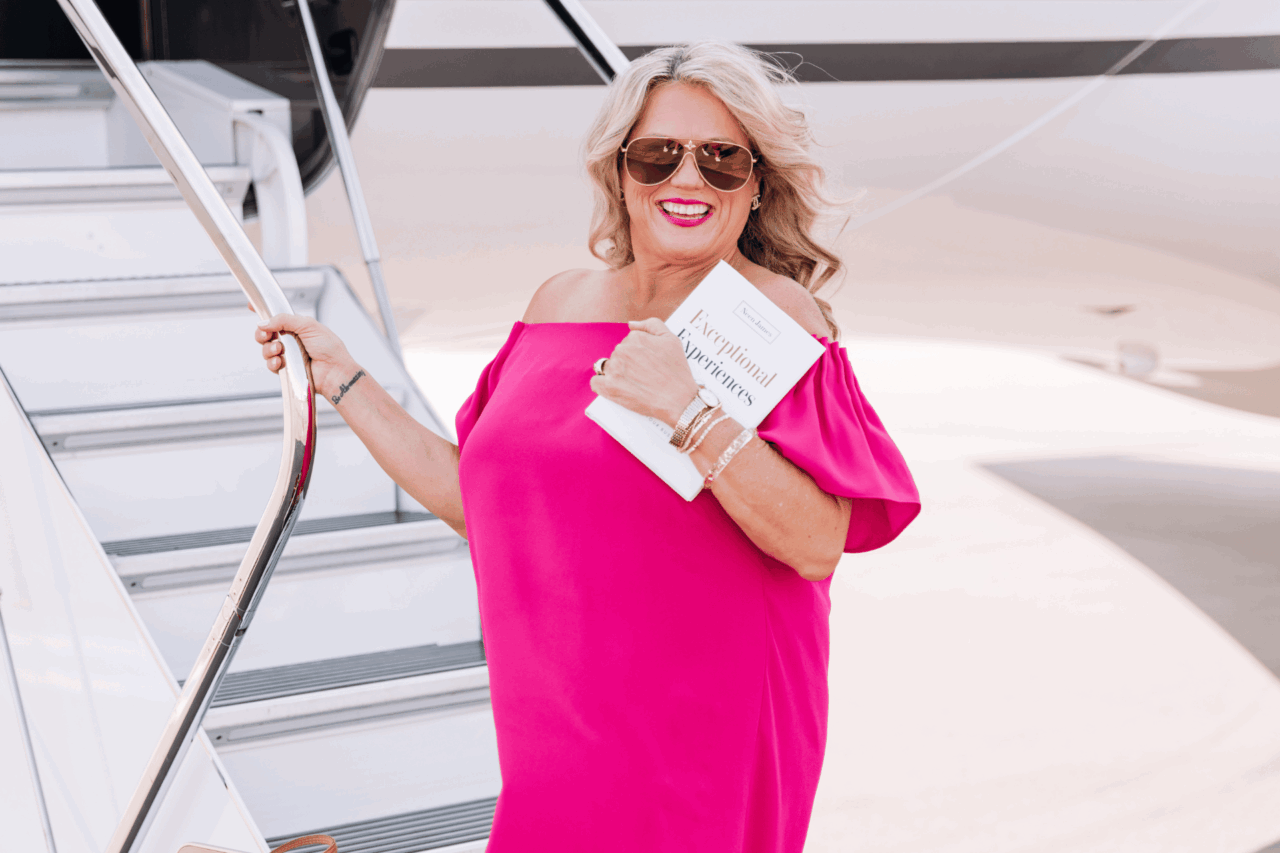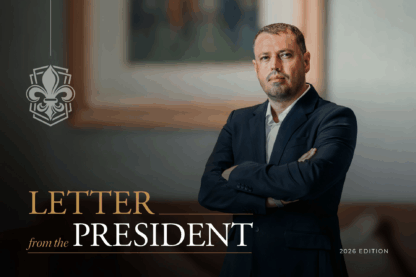In this exclusive feature, the World Luxury Chamber of Commerce brings readers into an insightful conversation with Neen James, celebrated keynote speaker, author, and thought leader in luxury strategy. With the upcoming launch of her highly anticipated book, Exceptional Experiences, Neen shares how her Experience Elevation Model™ empowers brands to transform ordinary touchpoints into extraordinary moments that inspire loyalty and advocacy.
Alexander Chetchikov: Neen, congratulations on the upcoming launch of Exceptional Experiences! Could you share with our readers an overview of the five luxury levers in your Experience Elevation Model™, and how these can be applied to advance a brand or business?
Neen James: I’m thrilled to share the Experience Elevation Model™ with your readers. This framework is my answer to leaders who ask, “How does luxury thinking actually drive market share?”
Exceptional Experiences is filled with strategies for brands to gain mind share and market share. It will help drive revenue, differentiate your brand, and create advocates for your business.
The five luxury levers work together like a symphony to transform every client touchpoint into an extraordinary moment:
- Entice captures attention through storytelling and emotional connection. Your clients are asking, “Why should I pay attention to you?” This is where you break through the noise of 150-500 daily messages they might be receiving with unique, personalized experiences that make them feel special and valued.
- Invite demonstrates your experience through luxury language and communication that creates a sense of belonging. Clients wonder, “How do I get access to that special level?” You’re giving them that coveted “red carpet” experience that shows thoughtfulness and attention to detail.
- Excite creates share-worthy experiences engaging all five senses. Your clients are thinking, “What else will they do?” This lever builds anticipation and leaves them wondering what delightful surprise comes next.
- Delight anticipates needs they didn’t even know they had. They’re amazed, asking, “How did they know what I needed before I did?” This is where personalization and systems of elevation really shine.
- Ignite builds lasting loyalty and turns clients into passionate advocates eager to share, asking, “Who else can I tell about my experience?” These clients become an extension of your brand.
The beauty of this model is that it doesn’t need to be linear—you can strategically start anywhere, based on where your clients are and what they need most. When you consistently apply these luxury levers, you create advocates who actively promote your business, and that’s the golden key to revenue in any industry.
AC: Luxury means different things to different people. What’s the biggest misconception you’ve encountered, and how do you define it for yourself?
NJ: The biggest misconception about luxury is that it’s only about expensive things or available to a limited few. That couldn’t be further from the truth!
Luxury is both inclusive and exclusive.
Inclusive because everyone deserves it, and exclusive because you can create experiences for those you serve.
My mum taught me the real definition of luxury when I was just a little girl. Growing up in humble beginnings in a small caravan in Australia, she couldn’t afford anything beyond our basic needs for my sister and me. But luxury came from the simplest things. Walking home from her late-night shifts, Mum would pick a flower from a community garden and bring it home, placing it in a glass, which she’d elevate by calling it a “vase” to feel fancy. That little gesture brought beauty and luxury into our everyday lives. She reminded us that, regardless of money or things, we all deserve luxury.
Luxury is about connection—it’s how we make people feel seen, heard, and valued. Luxury is about experiences, not things. It’s accessible to everyone, regardless of budget or industry. Whether you’re a real estate agent creating a memorable home-buying experience, a financial advisor making clients feel valued and understood, or a retail store owner adding personal touches, luxury is about how you make people feel and the memories you create.
When I consult with executives across diverse industries, sharing our luxury mindset research, that there are four mindsets and brand leades need to be able to speak the luxury language of the clients they want to attract and while these mindsets view luxury differently, all four agreed on two fundamental things—luxury is a reward for hard work, and luxury is about experiences, not things.
AC: You led a unique study that revealed four distinct luxury mindsets. Can you walk us through what they are and why recognizing someone’s luxury mindset is so important?
NJ: I’m thrilled to share our proprietary research study, the only one of its kind in the world, on the luxury mindset. We partnered with Audience Audit. When conducting executive strategy sessions with luxury and legacy brand leaders, I believed luxury is a mindset, and needed evidence to support that.
What we discovered is fascinating—there are four distinct ways people think about luxury:
The Reluctant and Removed (28%) find luxury hard and believe brands don’t understand them. They’re often busy and overwhelmed, feeling guilty about luxury purchases. For them, luxury is about reducing busyness, hassle, and worry. To attract them, show how luxury makes their lives easier and more efficient.
The Pro Prioritizers (25%) use luxury to advance their career and reputation. For them, luxury is power—they leverage it to dress for success and look the part professionally. They champion brands that align with their values and favor practical, sustainable luxury. They want to feel more confident and improve their impression.
The Confident and Content (22%) think “I’ve got this!” Luxury isn’t often a priority, nor does it have to be expensive. They enjoy creating memorable experiences for people they care about—luxury allows them to improve connections with friends and family.
The Luxury Lovers (25%) believe everyone deserves luxury every day and have what I call “big mouths”—they love sharing exceptional experiences! They want luxury that improves their professional and social status, and they become your best advocates because they actively tell others about their experiences.
Understanding these mindsets is critical because each responds to completely different language and experiences. When you can speak the luxury language of your specific clients, you transform your relationship from transactional to transformational. It’s the difference between having customers and having passionate advocates who drive your business forward.

AC: In what ways can crafting exceptional experiences give brands a competitive edge and directly impact the bottom line?
NJ: When brands deliver exceptional experiences using the five luxury levers, they create something I call “the golden key to revenue”—passionate advocates who actively promote their business.
In our global marketplace, people are bombarded with choices. Service has become the price of entry, but exceptional experiences are what truly differentiate brands and enable them to thrive. When you make clients feel seen, heard, and valued through systematic luxury principles, you’re not just creating customers—you’re creating advocates who become an extension of your marketing team and brand.
Our research also revealed: Luxury Lovers are the most influential over the other three mindsets. They can guide the Reluctant and Removed by showing them how an offering saves time and hassle. They align with the Confident and Content by explaining how it creates memories for people they care about. For Pro Prioritizers, they demonstrate how luxury enhances career and reputation.
The competitive edge comes from being memorable when everyone else is forgettable. When you systematically apply the Experience Elevation Model™, you create what I call “champagne moments”—those special times when something extraordinary happens that makes clients smile and brings joy. These moments stick in people’s minds and hearts.
The bottom line impact is substantial: advocates drive revenue through referrals, repeat business, and social media promotion. They become your welcome committee, actively posting about their experiences and recommending you to their networks. When you transform ordinary touchpoints into extraordinary moments through attention to detail and luxury thinking, you’re building a sustainable competitive advantage that compounds over time.
Remember, people don’t just buy products or services—they buy experiences and feelings. When you master the art of exceptional experiences, you master the art of business growth.
AC: You describe ‘champagne moments’ as a way to turn ordinary interactions into extraordinary connections. What are some practical ways professionals can bring these moments to life within their own industry?
NJ: I love this question because champagne moments are all around us. We can create these for others (and ourselves) – a way to make people smile, bring joy, and celebrate something or someone. They’re opportunities to pause, reflect, be present, and create joy just like bubbles in a glass of champagne.
Here’s what professionals across industries can do:
For Real Estate Professionals: Instead of just handing over keys, create a “key ceremony” with a beautifully wrapped box, a handwritten note about their new beginning, and perhaps a bottle of champagne with their closing documents. One agent I know leaves a personalized welcome basket with local artisan treats and a plant that represents “growing roots” in their new home.
For Financial Advisors: When clients reach investment milestones, don’t just send a statement. Create a personalized celebration—a handwritten note acknowledging their discipline, a small gift that reflects their goals (like a beautiful compass if they’re saving for travel), or an exclusive client appreciation event where they can connect with other successful clients.
For Retail and Hospitality: Train your team to notice and celebrate small moments. If someone mentions it’s their anniversary while shopping, bring them a complimentary glass of champagne (or sparkling cider). If a hotel guest is celebrating a promotion, leave a congratulatory note and a small treat in their room.
For Professional Services: Instead of generic follow-up emails, send handwritten thank-you notes on beautiful stationery. Consider creative ways to make digital documents more tangible, creating an impression with a unique delivery. Create exclusive behind-the-scenes access to your expertise through private workshops, events, or early access to new services.
The key is systematic thoughtfulness. I encourage leaders to create what I call “systems of elevation”—repeatable processes that ensure every client interaction has the potential to become a champagne moment. It’s about anticipating needs, adding personal touches, and making people feel like they’re part of an exclusive experience.
Remember, champagne moments don’t require expensive champagne—they require intention, attention, and a commitment to making others feel seen, heard, and valued. When you consistently create these moments, you’re not just building a business—you’re building advocates who will celebrate your brand long after the moment has passed. This is how you become top of mind (mind share) and top of market (market share).
Thank you, Neen!
As this conversation with Neen James makes clear, luxury today is not confined to price tags or exclusivity; it is about creating meaningful experiences that make people feel seen, valued, and connected. Her five luxury levers and insights on champagne moments provide a roadmap for brands and professionals seeking to elevate client relationships into lasting advocacy.
Get your copy of Exceptional Experiences here: https://neenjames.com/books/
Want to read more exclusives? Check out our news and insights: https://worldluxurychamber.com/insights-news/ & sign up for our newsletter here: https://worldluxurychamber.com/wlcc-community/





